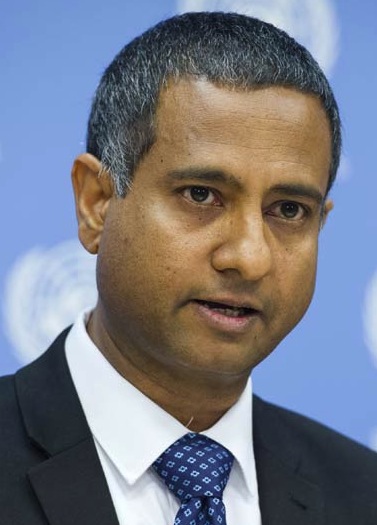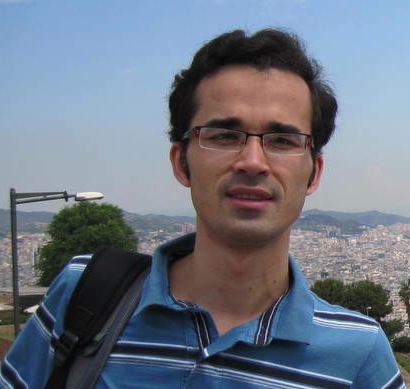
The UN human rights rapporteur on Iran, Ahmad Shaheed, told the UN Human Rights Council Tuesday that the situation for human rights in Iran has worsened in many categories in the past year, the first year of President Rohani’s term in office.
Shaheed did not blame Rohani personally for the worsening, as most of the areas Shaheed pointed to—such as executions and unfair trials—are beyond the control of the president.
Shaheed said a positive development was that the new Islamic Penal Code enacted last year drops the death penalty for apostasy, witchcraft and heresy, although it still allows for the execution of juvenile offenders and for many crimes that fall below the international standard limiting execution to the “most serious crimes.” Execution is still authorized, for example, for adultery, recidivist alcohol use, drug trafficking and drug possession, he said.
In addition, the death penalty is applied for the crimes of moharebeh (“enmity against God”) and mofsed fel-arz (“corruption on Earth”). He said ethnic minorities “appear to be disproportionately charged with moharebeh and mofsed fel-arz, sometimes seemingly for exercising their rights to peaceful expression and association.”
Shaheed highlighted problems of domestic abuse. “A woman wishing to leave an abusive situation must first prove that there is a significant risk of bodily harm or a threat to her life and safety in order to reside apart from her husband,” he wrote. “Likewise, under the Civil Code, women seeking to obtain a divorce as a result of domestic violence must first prove that the abuse was intolerable.”
Shaheed criticized Internet censorship in Iran. “Some 5 million websites remain blockedÖ. Two blog hosting platforms, WordPress and Blogspot, are 96 and 98 percent filtered respectively,” he states in his 28-page report.
The rapporteur also touched on child marriage, noting that the number of marriages of girls under the age of 10 more than doubled from 716 in the Persian year ending in March 2011 to 1,537 in the year ending in March 2012. He said the government responded to him that the law prohibits forced marriage, thus justifying the marriage of nine-year-olds.
He pointed out that the government’s own statistics show the proportion of women in the entering class of college dropped from 62 percent in the fall of 2007 to 48.2 percent in the fall of 2012.
He said women represent only 16 percent of the labor force in Iran, one of the lowest percentages in the world. The World Economic Forum issued a report this week showing that only Algeria and Syria join Iran in having female labor force participation under 20 percent.
Shaheed said men in Iran earn 4.8 times as much as women, “making the income gap between Iranian men and women one of the highest in the world.”



















